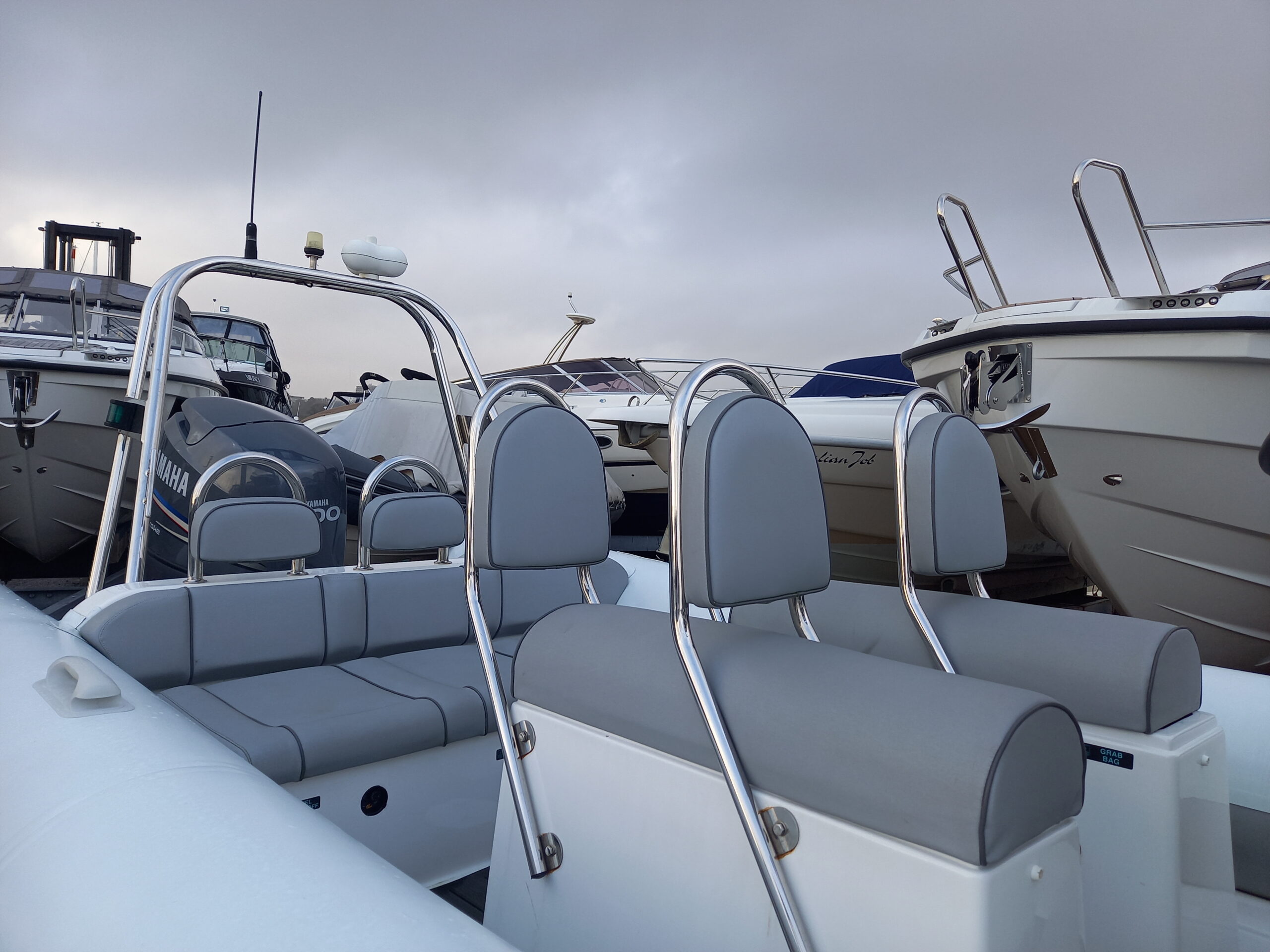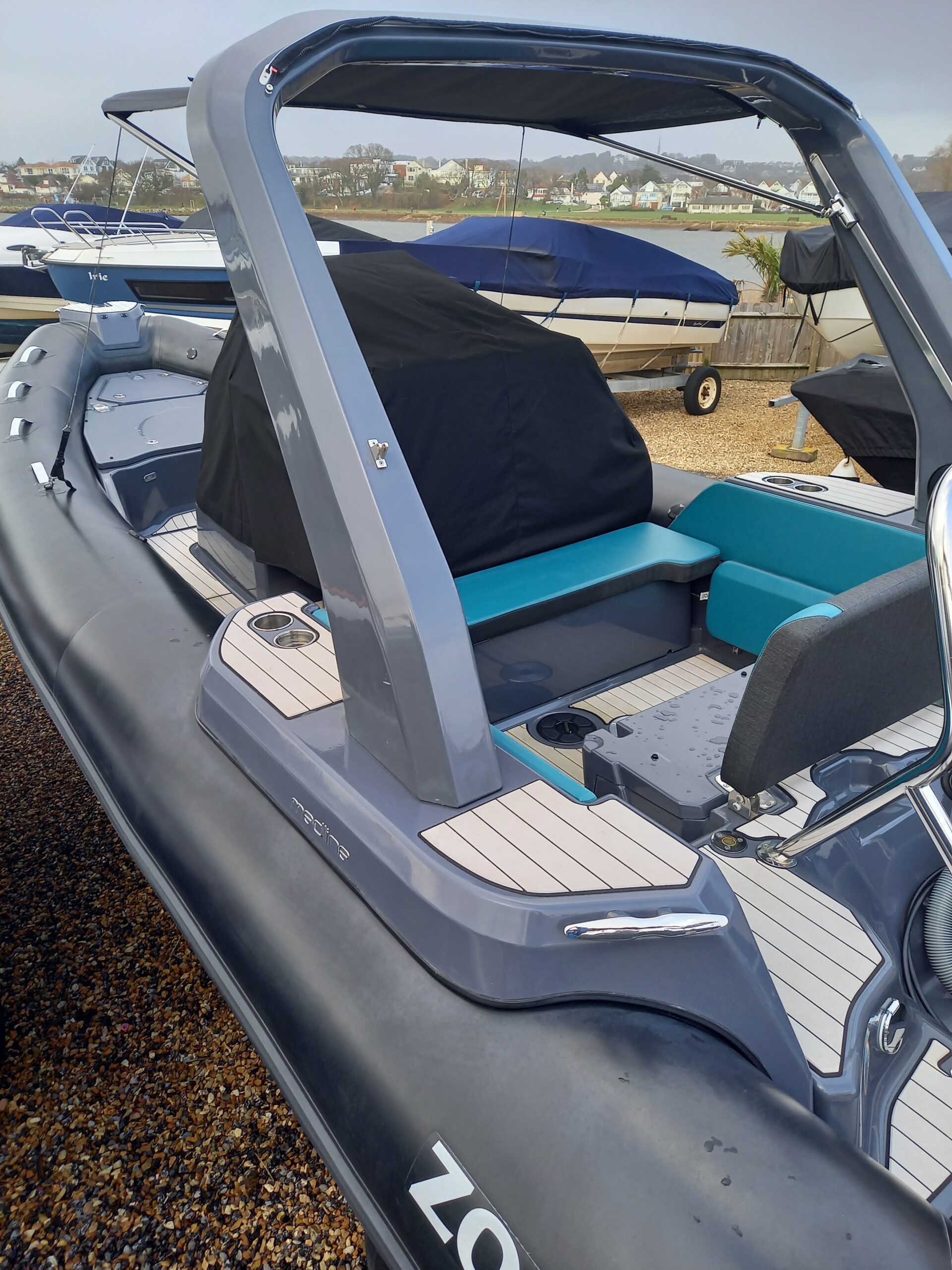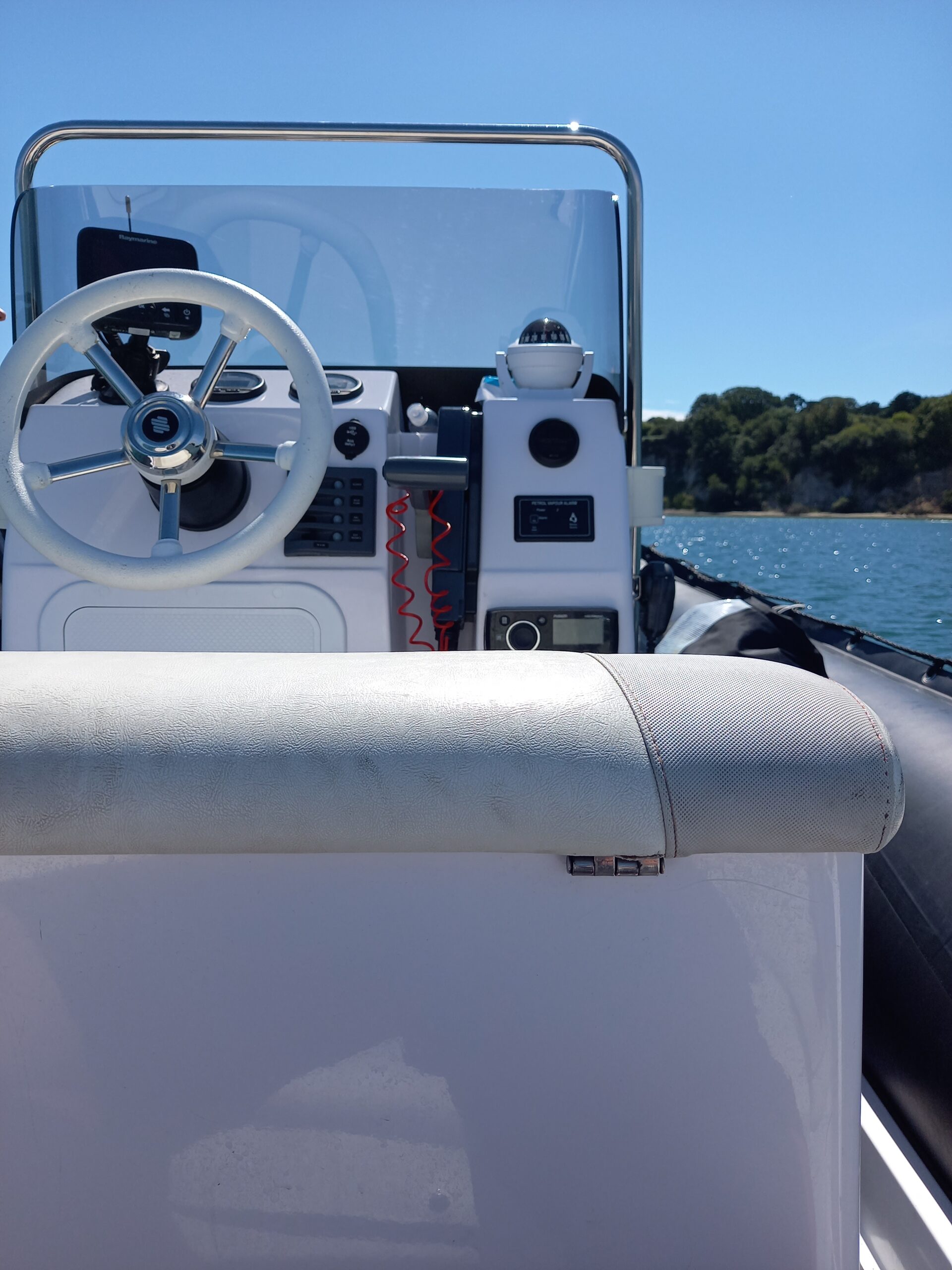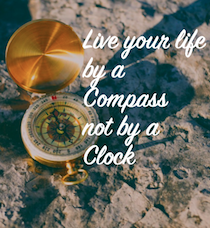Buying a RIB
Buying your first RIB (Rigid Hull Inflatable Boat)? Considerations when buying a RIB
Recently a friend sent me details of a RIB they had seen for sale and asked for my thoughts. My initial reaction was great, I love encouraging people to get out on the water and buying a RIB is perfect. When I thought about formulating a reply though I realised that I didn’t know enough about their intended use for the boat.
The boat itself looked like a good buy but its worth thinking about what you individually want from a boat. Until you have purchased a boat these things may not be obvious. Often people will have undertaken a RYA Powerboat Level 2 Course on a Training Centre Boat and been focussed on the learning so perhaps didn’t think about different configurations and options. The boats we use for training may have different requirements than leisure boaters heading out for a picnic.
It’s quite normal for people to change their boat about their first season as they understand what their own requirements. To try to help you get it right first time we will look a few of these considerations.
The blog assumes you already have experience of driving RIBs but the first purchase of a boat. It is written in mind of those using boats in sheltered conditions on summer days. In a later blog we can look at the process of buying itself.
Before starting the search let us start with some general considerations:
- What is the budget
- Project boat or ready to use
- Type of engine
- Who will be using the boat
- Where will it be used
- Where will the boat be kept
Budget for buying a RIB:
Consider whether the budget you have allocated needs to include the purchase of a boat and equipment and storage. Perhaps you have separate budgets allocated but don’t overlook the fact that with many boats safety kit will not come as standard. The kit you put on board will depend on where you plan to boat and what you want to use the boat for.
Unfortunately, the question of how much to allocate is tricky to answer. To help with budget it may be helpful to write a list of all the equipment you will require. Then when viewing boats you can ascertain how much is included within the asking price. If buying new this perhaps could be a negotiation tool.
Storage we will turn to later but do make sure you know whether this is included within your budget.
Does your budget include any repairs or modifications you require before you can use the boat? Even buying new, a boat is a bit like buying a new car – what optional extras would you like?
Don’t forget the costs of viewing boats if they are some distance away and the cost of transporting them home. Many a time I hear of someone who has bought a boat but not realised how much transportation costs home will be.
Ready to go or a project?
This will be very much a matter of personal choice. If you want to have a boat ready to go you need to undertake careful research into any boat including engines. Think about the process of buying a car – what risk level are you comfortable with? For some, buying a RIB new gives the comfort of a guarantee and a trader to seek support from should a problem emerge. That, however, comes at a price and so many will be looking to buy second-hand. All our boats have been second hand but carefully sourced. Do be aware when buying second hand that scams do operate on the internet so as with any purchase make sure you know who and what you are buying.
Ask around:
If you are buying second-hand but want the boat to be ready to go think about whether you have the expertise to view a boat alone or whether you should take along a friend experienced with boats, an engineer or a surveyor. It is a small world in boating and asking around will often enable you to find out the history of a boat. Ask the neighbouring boat owners, ask yards, ask on specialist forums, ask the fuel dock operator etc what they know of the boat. Boatyards are full of people happy to talk! Build a community of resource around you.
If you are tempted by a project boat make sure you have enough boating awareness to spot the difference between something that just needs work and something that is fundamentally dangerous. Make sure you have the skills to remedy any issues and the understanding of what is required for a boat to be safe. Ask yourself honestly do you have the skills, the time and the finances to see the project through? Have a plan in mind for where work will take place and the costings before you spend too much time browsing boats.
What type of engine?
It may help to determine if you prefer an outboard, inboard or jet drive boat and petrol or diesel. Locally most leisure boats are petrol outboards for a reason. They are relatively easy to service, find parts and replace if necessary but you may have your reasons for choosing a different type of engine.
Who will be using the boat?
Are you planning to use the boat alone, with friends or family? Be realistic, as to whether this is your dream or others are genuinely interested. Some buy boats as their way to get some alone time, others are unrealistic about it suddenly being the families dream.
Layouts:
If using a RIB alone then consider will you be floating in warm waters and flat seas? In which case the seating will be a fairly straight forward choice on comfort. If you want to up the adventure or your location has the potential for waters to get ‘interesting’ then a jockey seat will probably be a more suitable choice. As you progress then shock mitigation seats become relevant but this blog is aimed at leisure boaters starting out. If boating with a partner or friends are you happy sitting one behind the others or would you prefer to be alongside one another?
If you are hoping to take family afloat, be realistic about the sort of conditions they will be happy in. Flat summer picnic days will require a different layout to challenging waters.
To help consider layouts, perhaps think about the following questions:
- How much kit will the family want to bring on board?
- What is storage like – is it dry or how will you tie bags down?
- Will the family be happy on jockey seats or are you heading out in waters where bench seats would be suitable?
- If you have little ones within the family, can they reach the floor when sat on jockey seats?
- Will you need shelter on a sunny day via a bimini or perhaps a loo on board?
- Are you looking for a sunbathing area at the front of the RIB?
- If you plan to swim from the boat how will you get back on board?
Also think about the height of consoles – you may well find the console the perfect height or throttle in a comfortable position but does the same work for other members of the family?
When you start the viewing process get on board the boats and sit in various places. Think about do you prefer to sit or stand to ‘drive’ the boat? Consider how this affects the viewing position.
If you plan to use the boats for picnics does the layout facilitate that? Most commercial RIBs are designed for safety at higher speeds and in choppier waters and therefore use jockey seats. These are not the most comfortable for picnics!


Bench seats, jockey seats or picnic style?
Storage:
In either case consider what storage you require on a boat, both for safety kit and the personal possessions. Even spare waterproofs for a family need stowing somewhere! If you plan to take fishing kit or watersports toys such as ringos, wakeboards or paddleboards where will these be carried?
If the layout isn’t perfect ensure you have allocated money within the budget to make modifications. Don’t forget to allocate space for safety kit.
Where do you plan to use your boat?
We now need to consider not just layouts but hull shapes. If we use the analogy of cars, you are unlikely to use a Porsche off road or an old transit for speeding down the motorway comfortably. You pick your car for the sort of conditions you will most often need it for and similarly with boats. This blog is aimed at those starting out on their boating journey so assuming we are looking at benign conditions. Ask around the locations you will be boating, have a look at how different boats handle the local conditions. Think about the depth of the waters you will be boating in, the weather patterns and the speeds you plan to safely travel at.
Where to keep your boat:
The lucky ones amongst us will probably enjoy drystack storage or a marina pontoon berth. These make boating relatively easy but come at a cost.
Many starting out have a plan that they will trail their boat to the water each time. In some locations this is practical but be realistic about the towing demands:
- Is your tow vehicle capable and legal for towing the weight of boat and trailer?
- Is the trailer in good condition and legal? Factor in servicing costs
- Are you allowed to tow on your driving license? Are you capable?
- What slipways do you have access to? Are they in good condition?
- Is there secure parking for trailers and vehicles?
- Will you have access to local boating businesses if something breaks?
- Are there washdown facilities for the trailer, boat and engine?
- Is it tidal?
- Where will you store your boat ashore? Boats always seem bigger when you are trying to force them between gateposts to put on a drive!
Be realistic about the time involved in launch and recovery.
Where you keep your boat may impact on the size of boats you will be looking at. In a marina or drystack you will probably be charged by the metre, if you are towing then tow weights and storage at home will impact the decision.
Next steps when buying a RIB:
Hopefully the five points above will have started you thinking in general terms about what is practicable for your individual needs. As you start to search for boats you will no doubt become more specific. Do get a sea trail if possible.
Fundamentals to think about if looking second-hand:
- State of the tubes
- Condition of the engine and steering system
- Electrics
- Hull condition
Specifics On board:
- Layout/configuration
- Seating sturdiness
- Seat backs and wings?
- Grab Handles
- Height of transom
- Ease of water drainage
- Hull shape
- Electronics – depth sounder, radio, chart plotter
- Dry Storage
- Ease of access to safety kit
- Fittings for cleats and lines
- Anchor storage and fittings
- Quality of fittings
- Throttle and steering systems; locking neural, fly by wire, cable, hydraulic?
- A frame?
Where to view boats?
Take your time to either visit shows such as the Southampton Boat Show or brokers such as Parkstone Bay who usually have a variety of different RIBs on brokerage that you can view on site. It is a great opportunity before buying a RIB to have a look around at different options.
Before finalising on a boat do obviously make sure you have completed legal checks, thought about insurance and whether the boat has a RCD plate.
We hope this blog has started raising questions in your mind. The priorities will be different for each individual but thinking about these aspects in advance will make your search more effective.
What else would you add to the list? Let us know below your thought and how your search process is going.












